In a new initiative, the University is celebrating its internationally acclaimed scholars by creating a prestigious new role – the Sesquicentennial Distinguished Chair (Poutoko Taiea).
These new chairs highlight the work of the University's highest-achieving professors, individuals who are not only outstanding teachers and researchers, but who have a well-established track-record of sharing their work with communities outside the University.
Vice-Chancellor Harlene Hayne says those chosen for the title are outstanding citizens with a strong record of leadership and service in the University who are pre-eminent in their fields.
“These scholars are carrying out research at the highest level which has a positive impact on the understanding, development and well-being of individuals, society and the environment.
“It truly is a great honour and pleasure to be celebrating the contribution of these outstanding colleagues, whom the University is enormously proud to have leading the way in teaching, research, service and outreach.
“It is also appropriate for this new initiative to be named for, and announced, in our sesquicentennial year – as Otago celebrates its first 150 years of excellence in research and teaching and in tackling big problems facing New Zealand and the rest of the world.”
The Sesquicentennial Distinguished Chair is a limited four-year role, with a maximum of ten appointments to be held at any one time.
During their appointment, the distinguished professors will be given the opportunity to showcase their work and engage and inspire others.
The 2019 appointments are:
Professor Robert Patman, Politics
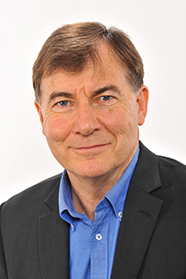 Professor Patman says the appointment is a tribute to the excellence of the Politics programme at Otago, “which has given me the platform to teach International Relations to students and contribute to public education here and overseas”.
Professor Patman says the appointment is a tribute to the excellence of the Politics programme at Otago, “which has given me the platform to teach International Relations to students and contribute to public education here and overseas”.
“I am truly honoured to receive this appointment in what is a major landmark in the life of our University.”
Professor Patman will be taking part in a number of new initiatives to raise public awareness of his research and teaching, and to raise the University's profile over the next few years. Among them is the expansion of the University of Otago Foreign Policy School, with an annual National Security Summer School being planned, as well as a new book and the continuation of his Global Insight with Robert Patman series in conjunction with the Otago Daily Times.
Biography
Robert G. Patman is Professor of International Relations in the Politics programme at the University of Otago. He served as an editor for International Studies Perspectives (2010–2014) and Head of Department of Politics (2013–2016). Professor Patman is the author or editor of 12 books. Recent publications include Strategic Shortfall: The 'Somalia Syndrome' and the March to 9/11 (Praeger, 2010) and three co-edited books titled China and the International System: Becoming a World Power (Routledge, 2013); Science Diplomacy: New Day or False Dawn? (World Scientific Publishers, 2015); and New Zealand and the World: Past, Present and Future (World Scientific Publishers, 2018). Professor Patman is currently writing a volume called Rethinking the Global Impact of 9/11 (Palgrave Macmillan, 2020). He is a Fulbright Senior Scholar, an Honorary Professor of the New Zealand Defence Command and Staff College, and provides regular contributions to the national and international media on global issues and events.
Professor Jacinta Ruru, Faculty of Law
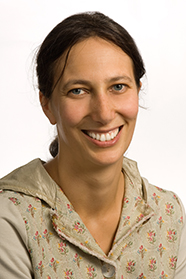 Professor Ruru says she is “deeply honoured and thrilled to have this incredible opportunity, especially to represent the tertiary institution most close to my heart, the University of Otago, in this manner”.
Professor Ruru says she is “deeply honoured and thrilled to have this incredible opportunity, especially to represent the tertiary institution most close to my heart, the University of Otago, in this manner”.
Professor Ruru has many projects on the go which will become public over the next four years, including co-editing with Justice Jo Williams the country's first comprehensive Māori law treatise, and co-editing with Professor Linda Nikora the country's first major book exploring the interface of mātauranga Māori with sciences and tertiary research.
Next year she will co-host the Ngā Pae o te Māramatanga New Zealand's Māori Centre of Research Excellence 8th International Indigenous Research Conference in Auckland, where attendees will represent more than 100 Indigenous nations from around the world.
Biography
Jacinta Ruru is a Professor of Law in the Faculty of Law at the University of Otago. She is co-Director of Ngā Pae o te Māramatanga New Zealand's Māori Centre of Research Excellence. Her research centres around the legal interests of Indigenous peoples to own, manage and govern land and water. Her work engages across the law including Indigenous laws, common law, environmental law, jurisprudence, legal history, property law (specifically Māori freehold land), and constitutional law. Professor Ruru holds multiple roles including that of Ministerial appointment to Te Papa Tongarewa Museum of New Zealand Board and as a member of the Editorial Board for the Federal Law Review. Her honours include being elected as a Fellow of the Royal Society Te Apārangi and being awarded The Prime Minister's Prize for Tertiary Teaching Excellence and Kaupapa Māori Tertiary Teaching Excellence Award in 2016.
Professor Neil Gemmell, Department of Anatomy
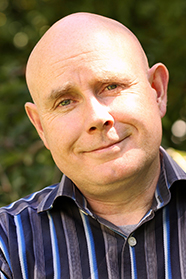 Professor Gemmell is delighted to be named in the initial group of Chairs.
Professor Gemmell is delighted to be named in the initial group of Chairs.
“Our University is home to an exceptional community of researchers doing ground-breaking work, so to have been selected from this pool for this distinction is humbling. I will do my utmost to generate the most from this opportunity.”
Professor Gemmell intends to continue his work “sparking scientific curiosity and increasing scientific understanding among individuals from all walks of life, ages and cultural backgrounds”. His recent focus on environmental DNA and Loch Ness will form part of that work alongside public talks and interviews, and the writing of “popular science pieces” alongside continuing work on high quality research and research-informed teaching.
Biography
Neil Gemmell is a Professor of Anatomy at the University of Otago and the AgResearch Chair in Reproduction and Genomics. He is an internationally recognised researcher working at the interface of genomics, evolutionary biology and ecology whose breadth of interests and novel lines of investigation have led to key insights across a range of areas. Alongside more recent headline grabbing environmental DNA work at Loch Ness, Professor Gemmell has been involved in work supporting the Biological Heritage and Sustainable Seas National Science Challenges and Predator Free 2050. He was a Fulbright Senior Fellow in 2018 and received the MJD White Medal from The Genetics Society of Australasia (2018), the University of Otago Research Group award (2018), and the Research Excellence Award from the New Zealand Society of Biochemistry and Molecular Biology's this year.
Professor Greg Cook, Department of Microbiology and Immunology
 Professor Cook has two areas with particular focus over the duration of his appointment. The first is to “join up our large international collaborative research network with our local expertise, to capture international funding opportunities in both fundamental and translational biomedical research”.
Professor Cook has two areas with particular focus over the duration of his appointment. The first is to “join up our large international collaborative research network with our local expertise, to capture international funding opportunities in both fundamental and translational biomedical research”.
The second is to raise Otago's profile in agricultural innovation. “This is an area in which we have not been traditionally strong but represents a tremendous opportunity for Otago going forward. We have a number of programmes that interface with the farming community and agribusiness in New Zealand.”
Professor Cook says he is honoured by his appointment. “I am part of an academic community that has many inspiring and world-leading academics. I will do my absolute best to represent them with distinction in my various activities.”
Biography
Greg Cook is a Professor of Microbiology at the University of Otago. He is a world-leading authority on the metabolism and energetics of microbial growth. The overall goal of his research is to develop bacterial metabolism and energetics as a new target space for drug development to combat antimicrobial-resistant bacterial pathogens in humans and animals. Professor Cook has discovered and validated new drug targets for the treatment of tuberculosis disease and played a leading role in understanding how new drugs against this disease work. He has recently applied these discoveries to applications in the Agricultural sector including discovering new inhibitors for management of mastitis and greenhouse gas emissions in ruminant animals and soils. Professor Cook has published over 200 peer-reviewed journal articles and reviews and his work has featured on the covers of high-ranking journals eight times. In addition to his role as Microbiologist at the University of Otago, he has been widely recognised for his research and is a Fellow of the Royal Society New Zealand, James Cook Fellow, 8th Sir William Dunn Fellow (Cambridge), and Deputy Director of the Maurice Wilkins Centre for Molecular Biodiversity.
Professor Hamish Spencer, Department of Zoology
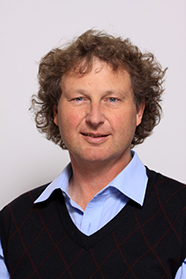 Increased outreach and engagement, and mentoring are top priorities for Professor Spencer's four-year-term.
Increased outreach and engagement, and mentoring are top priorities for Professor Spencer's four-year-term.
“I plan to increase my public outreach, highlighting aspects of my research, especially its interdisciplinary aspects, by speaking to various community groups. I will explore the possibilities of increased engagement with Māori, building on my experience with iwi from Tairāwhiti. And finally, I will offer to mentor and advise academics interested in the science-policy interface, leveraging my experience as one of the departmental science advisors for the Ministry of Business, Innovation and Employment.”
Professor Spencer says he is delighted to have been selected. “I am excited to be able to increase the outreach and community engagement associated with my research and service, especially its interdisciplinary nature, to both academics and the wider public.”
Biography
Hamish Spencer is a Professor in the Department of Zoology at the University of Otago. Professor Spencer carries out research into a wide variety of topics in evolution and genetics, and has published more than 150 refereed scientific articles. Much of his work involves mathematical modeling of genetic changes that occur in human, animal and plant populations. Most recently, he has worked on incorporating the effects of epigenetic modifications into the standard models of evolutionary genetics. In addition, Professor Spencer is interested in applying molecular-genetic methods to the understanding of our native flora and fauna, having recently published on the evolutionary relationships of shags, marine and terrestrial molluscs, trematode parasites and bull kelps. He was awarded the Royal Society of New Zealand's Callaghan Medal for science communication in 2016 and that same year was appointed as one of the two Departmental Science Advisors at the Ministry of Business, Innovation & Employment.
Professor Sally Brooker, Department of Chemistry
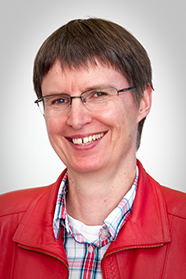 Professor Sally Brooker pointed to her wider team in reacting to her appointment. “I am thrilled to have my team's research recognised in this way”.
Professor Sally Brooker pointed to her wider team in reacting to her appointment. “I am thrilled to have my team's research recognised in this way”.
Her plans for her term include increasing her work visiting schools to present the team's solar fuels research and inspiring students, particularly girls, to consider science. She also hopes to increase her involvement in work which develops the pathways for women in science. “Considerable progress has been made in my own department, going from being the sole woman for a long time, to now being one of four women lecturers.”
Upcoming plans include chairing the 2nd Otago Future Fuels workshop in 2021 and participating in a tour of German centres of research excellence in 2020, organised by the German Academic Exchange Service.
Biography
Sally Brooker MNZM is a Professor of Chemistry at the University of Otago. Her major research focus is the design, synthesis, X-ray crystal structure determination and full characterisation of (mostly) paramagnetic polymetallic transition metal and lanthanide complexes. These studies probe the special properties that metal ions display when they are placed in designer ligand pockets in a controlled array. The complexes have many potential applications, for example as molecular switches or sensors (magnetic), biological probes (luminescent), or as 'green' catalysts for production of compostable plastics or of future fuels such as hydrogen. Professor Brooker was awarded the Royal Society of New Zealand Hector Medal in 2017 for outstanding work in chemical, physical or mathematical and information sciences, and her services to science were recognised with her appointment as a Member of the New Zealand Order of Merit the same year.
Professor Philippa Howden-Chapman, Department of Public Health, University of Otago Wellington
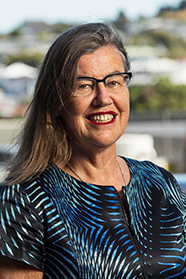 Further raising awareness of the work of both the University and two research programmes she chairs will be the goal of Professor Howden-Chapman's four-year term.
Further raising awareness of the work of both the University and two research programmes she chairs will be the goal of Professor Howden-Chapman's four-year term.
“I welcome the opportunity,” she says of the honour. “I foresee many opportunities to showcase the work of the He Kāinga Oranga / Housing and Health Research Programme, which I co-chair, and the New Zealand Centre for Sustainable Cities, which I chair.”
For example, Professor Howden-Chapman will give a keynote address at the Australasian Epidemiology Conference Epidemiology in the Real World in Brisbane next month and will be attending the International Conference on Urban Health, “People oriented urbanization; Transforming cities for health and wellbeing” in Xiamen, China. She helped to organise the conference as the chair of the committee entitled 'International Science Council Urban Health and Wellbeing; a systems approach'. The committee is co-sponsored by the Inter-Academy partnership and the International Society for Urban Health and is hosted by the Institute of the Urban Environment and the Chinese Academy of Science twice a year in Xiamen.
Biography
Philippa Howden-Chapman is a professor of public health at the University of Otago, Wellington, New Zealand, where she teaches public policy. She is co-director of He Kāinga Oranga / Housing and Health Research Programme and the New Zealand Centre for Sustainable Cities. She has conducted randomised community housing trials in partnership with local communities, which have had a major influence on housing, health, energy policy and climate change mitigation. She has a strong interest in reducing inequalities in the determinants of health and has published widely in this area, receiving a number of awards for her work including a Queen's Service Order for Services to Public Health in 2009 and the Prime Minister's Science Team Prize in 2014. From 2012 she was the chair of the WHO Housing and Health Guideline Development Group, until the WHO approved these Guidelines in 2018 when they were launched at the Wellington Summer School. She was also a member of the Children's Commissioner's Expert Advisory Group on Solutions to Child Poverty. She is a Fellow of the Royal Society of New Zealand and is one of the newly appointed Directors of the board of Kāinga Ora.
For more information, contact:
Fiona Clarkson
Manager, Communications Advisory Service
University of Otago
Tel +64 3 471 6272
Find an Otago expert
Use our Media Expertise Database to find an Otago researcher for media comment.